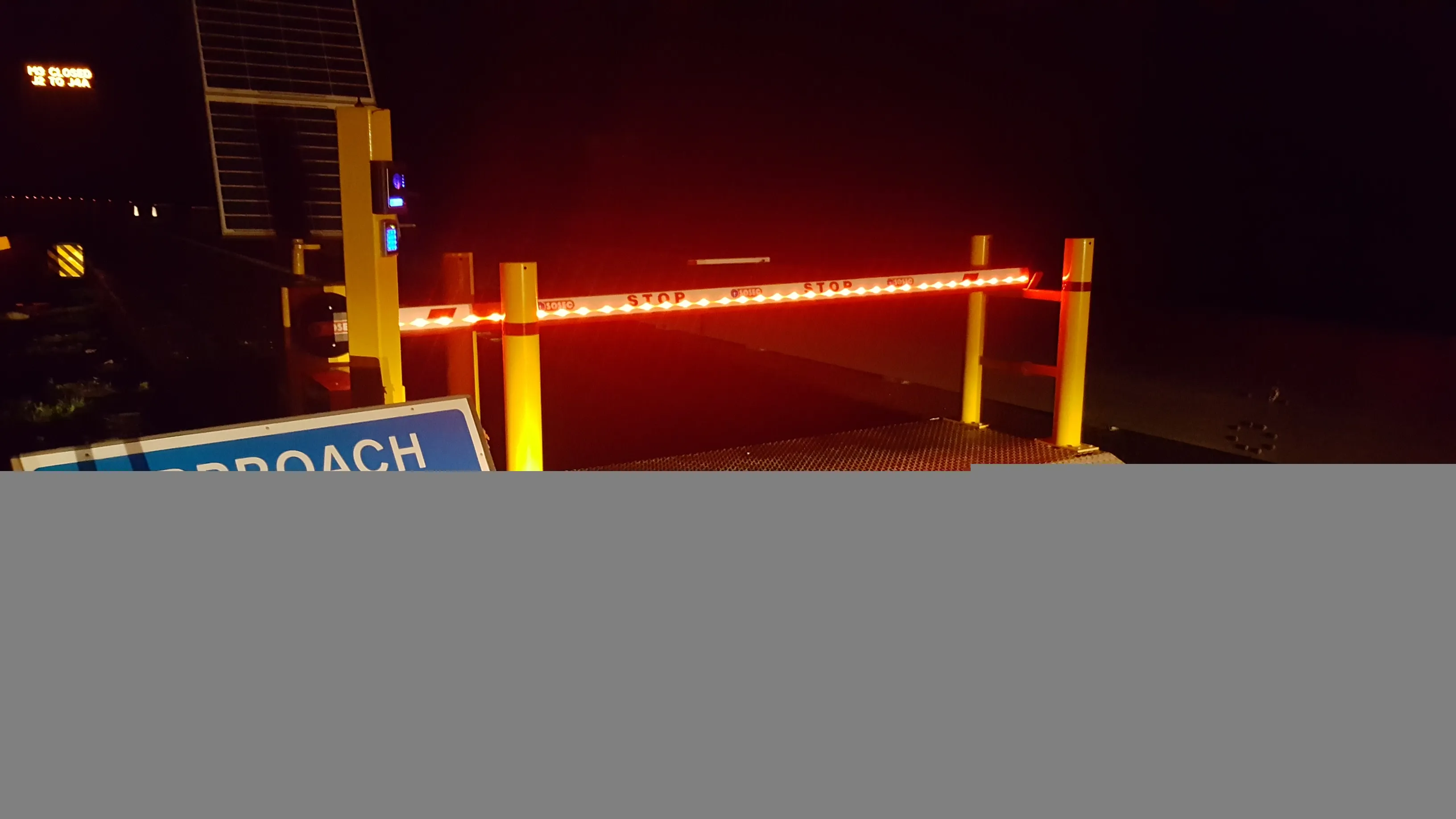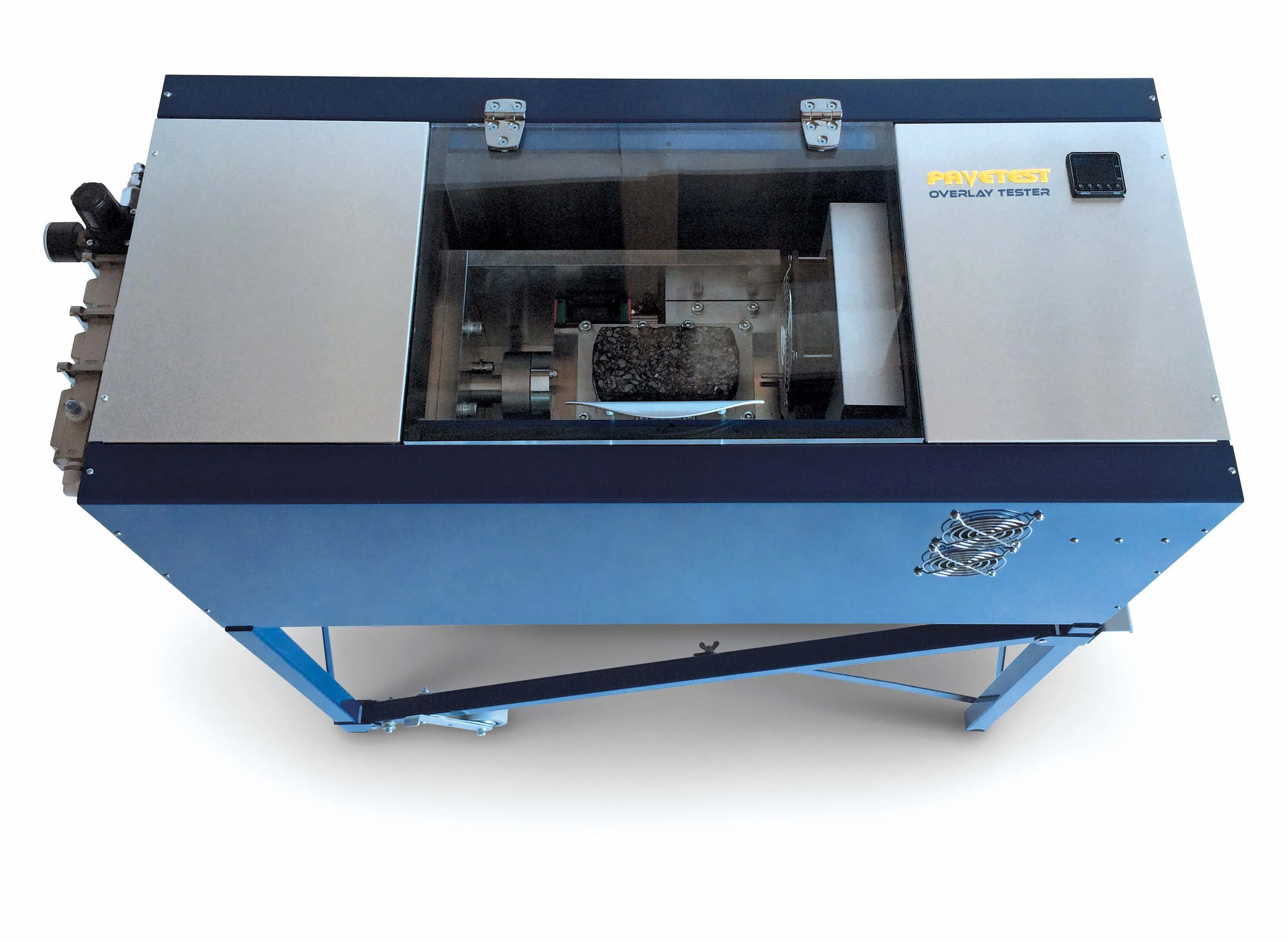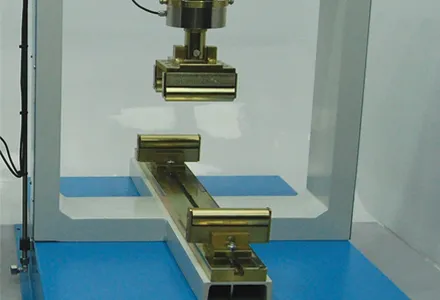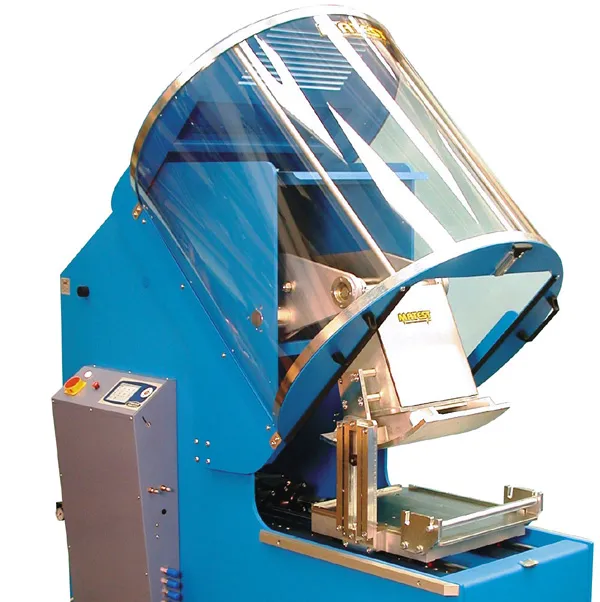
The SOSEC gate – solar and security – is made by Green Gate Access Systems, a subsidiary of Solar Gates UK, which provides and installs solar and mains-powered gates, barriers and access control systems. The system on the M23 provided contractors with a power-free method to slow and control access to the work zone, track who is on site and prevent accidental entry from the public.
Highways Care, a contractor responsible for installing overnight 1.5km of temporary crash barrier on the live lane, used the SOSEC system to secure the entire route. A 4G intercom allows visiting contractors or emergency services to contact the central control office with known contractors using managed swipe cards or entry codes – all powered by the sun.
SOSEC combines a 5m automatic traffic barrier with optional full-length drop skirt and LED lights to control vehicles with a rugged, locked and self-closing gate for pedestrians. It is designed around a rugged, galvanised, 8mm steel platform with a compact footprint allowing it to be positioned with a forklift or telehandler.
A high-capacity solar panel operates the barrier up to 900 times per day, even during an average British winter. For short-term sites, SOSEC comes with a battery store for use up to one month.
The combined barrier and gate allows access control to be customised to site needs. Supplied with simple key code and radio remotes as standard, additional options include 700m remotes, mobile phone opener, swipe cards, key codes, open/close timer or simple entry/exit on approach. Each unit arrives fully tested to BS EN13241-1, force tested to BS EN 12445 and complies with the gate safety standards as defined in DHF TS011.








